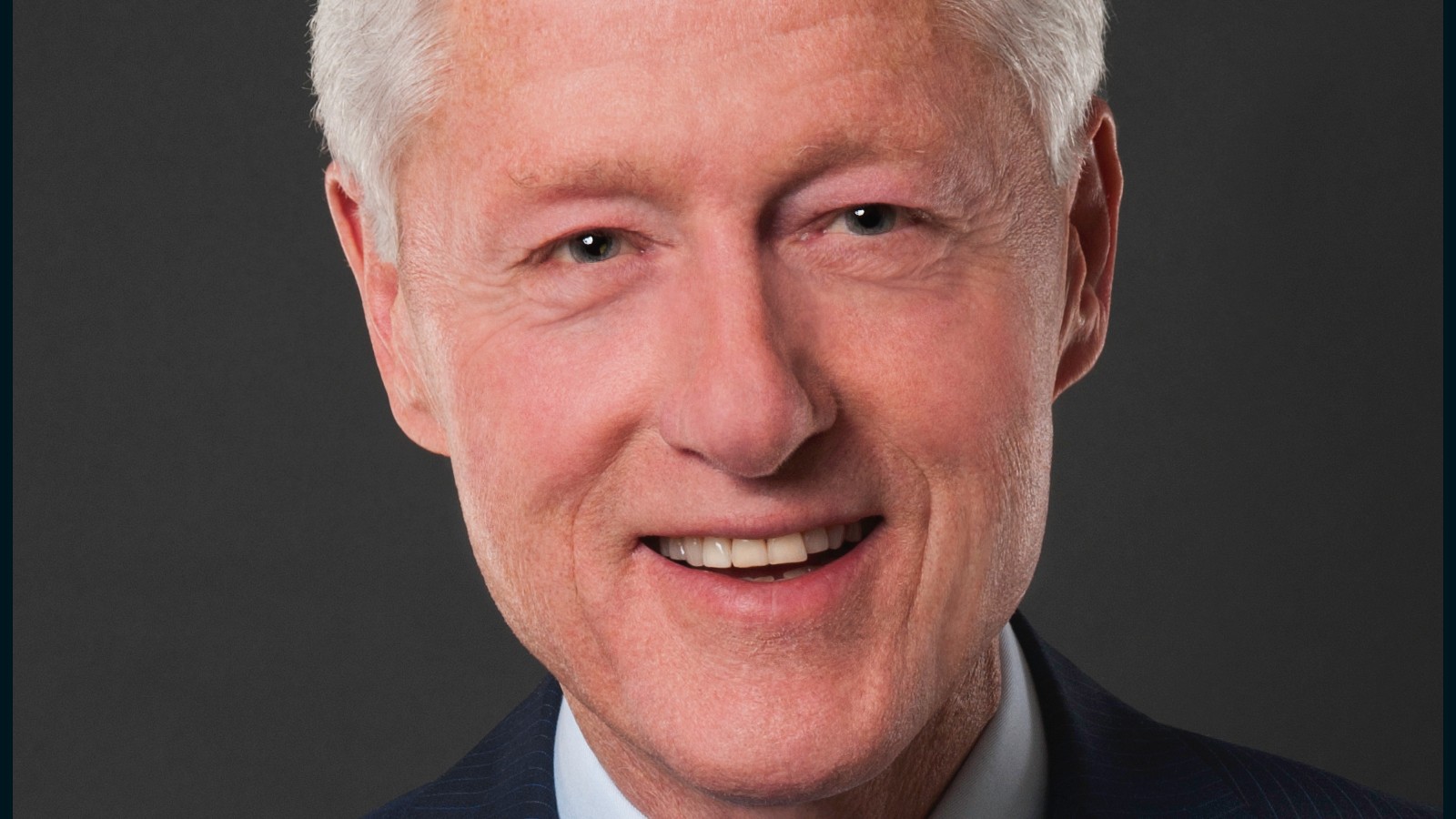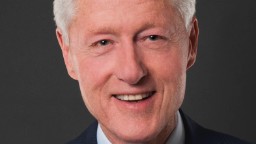

Father: William Blythe
Mother: Virginia (Kelley) Blythe
Children: Chelsea Victoria, February 27, 1980
Education: Georgetown University, B.S., 1968; Oxford University, Rhodes Scholar, 1968-1970; Yale University, J.D., 1973
Religion: Baptist
Other Facts
Clinton was born three months after his father, William Blythe, died in a car accident.
In his teens, Clinton adopted his stepfather Roger Clinton’s last name.
The first Democrat since Franklin Delano Roosevelt to be elected to a second term.
Timeline
1972 – Directs the Texas campaign of Democratic presidential candidate George S. McGovern.
1974 – Runs unsuccessfully for the House seat of Arkansas’s Third Congressional District.
1976 – Elected Arkansas state attorney general.
1978 – Is elected governor of Arkansas at age 32.
1980 – Loses gubernatorial reelection.
1982 – Wins the gubernatorial election.
1984 – Reelected as governor of Arkansas. Also reelected in 1986 and 1990.
October 3, 1991 – Announces his campaign for president.
June 3, 1992 – Clinton plays the saxophone on “The Arsenio Hall Show.”
May 6, 1994 – Paula Corbin Jones, a former Arkansas state employee, files a federal civil lawsuit in Little Rock, Arkansas, accusing Clinton of making “persistent and continuous” unwanted sexual advances toward her during a business conference in May 1991, when Clinton was the governor of Arkansas.
September 13, 1994 – Clinton signs the Violent Crime Control and Law Enforcement Act of 1994 into law. The bill increases funding for police departments and imposes tougher prison sentences for federal crimes.
November 5, 1996 – Clinton is reelected for a second term.
February 25, 1997 – The White House releases documents from 1995 that show Clinton had approved of plans to reward Democratic Party donors with overnight stays in the Lincoln Bedroom.
January 17, 1998 – During a videotaped deposition by Jones’ lawyers, Clinton denies a sexual relationship with former White House intern Monica Lewinsky.
January 21, 1998 – The story about the Lewinsky allegations breaks in the press. The allegations come to light after Starr learns of audiotapes on which Lewinsky describes the alleged affair and cover-up to a confidante, Linda Tripp.
February 2, 1998 – Clinton signs the first balanced budget since 1969.
August 6, 1998 – Lewinsky testifies before the grand jury about her relationship with Clinton.
November 13, 1998 – Clinton agrees to pay Jones $850,000 to settle her sexual harassment lawsuit.
December 11-12, 1998 – The House Judiciary Committee approves four articles of impeachment against Clinton, accusing him of lying under oath, obstructing justice and abusing his presidential power in an effort to conceal a sexual relationship with Lewinsky.
December 19, 1998 – The full House approves two of the four articles (perjury and obstruction of justice). Clinton becomes the second president in US history to be impeached.
January 7, 1999 – Senate trial on perjury and obstruction of justice charges begins.
February 12, 1999 – Senate trial ends with an acquittal. The vote on the perjury charge is 55 to 45 and the obstruction of justice charge is split 50-50. A two-thirds majority, or 67 votes, was required for conviction.
September 20, 2000 – After six years, independent counsel Robert Ray closes the Whitewater investigation, clearing the Clintons of any wrongdoing.
January 15, 2001 – A cancerous lesion is removed from Clinton’s back. Doctors determine the cancer did not spread and do not consider it serious.
January 19, 2001 – The day before leaving office, Clinton agrees to give up his Arkansas law license for five years, and to pay a $25,000 fine to the state bar association, ending efforts by the Arkansas Supreme Court Committee on Professional Conduct to disbar him.
January 20, 2001 – Hours before leaving office, Clinton pardons 141 people, including Whitewater figure Susan McDougal and publishing heiress Patty Hearst. The most controversial pardon is that of financier Marc Rich, who had been a fugitive in Switzerland. The president also pardons his brother, Roger Clinton, who had been convicted on a cocaine charge in the 1980s.
July 30, 2001 – Formally opens his post-presidential office in the Harlem neighborhood of New York City.
July 27, 2004 – Clinton is the keynote speaker on the first night of the Democratic National Convention in Boston.
September 3, 2004 – Clinton goes to Northern Westchester Hospital after experiencing mild chest pain and shortness of breath. Doctors say bypass surgery is necessary.
September 6, 2004 – Undergoes a four-hour bypass operation at New York Presbyterian Hospital. His doctors announce that some of his arteries had been blocked more than 90%.
February 13, 2005 – Wins a Grammy Award for Best Spoken Word Album for “My Life.”
February 2005 – Clinton and George H.W. Bush travel to Asia to visit the areas hit by the tsunami.
February 11, 2010 – Is rushed to New York Presbyterian Hospital with “chest discomfort” and undergoes a procedure that places two stents in one of his arteries.
November 8, 2011 – Clinton’s book about how to revive the economy, “Back to Work,” is published.
November 20, 2013 – Is awarded the Presidential Medal of Freedom by Obama.
